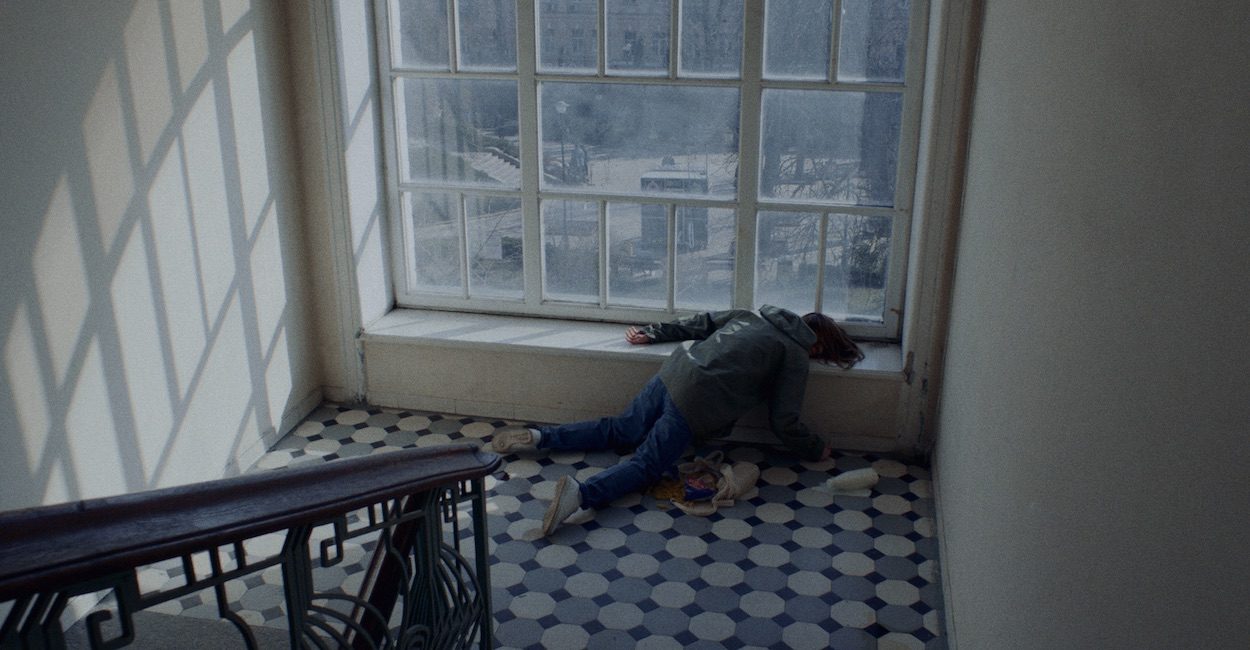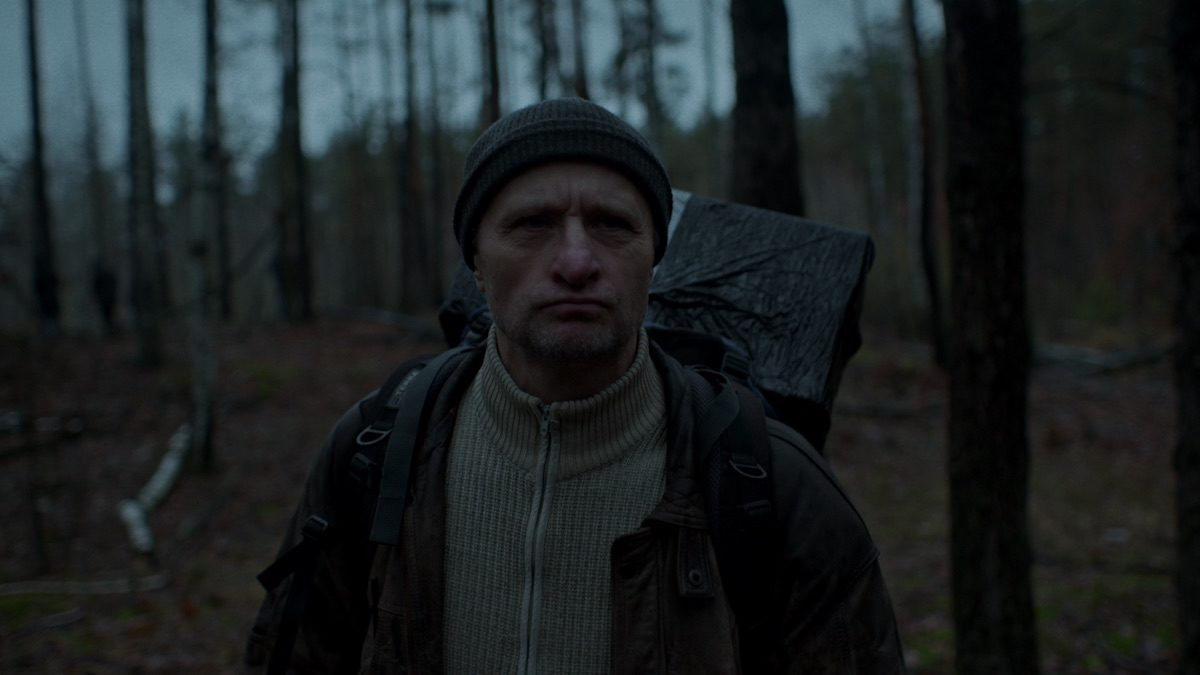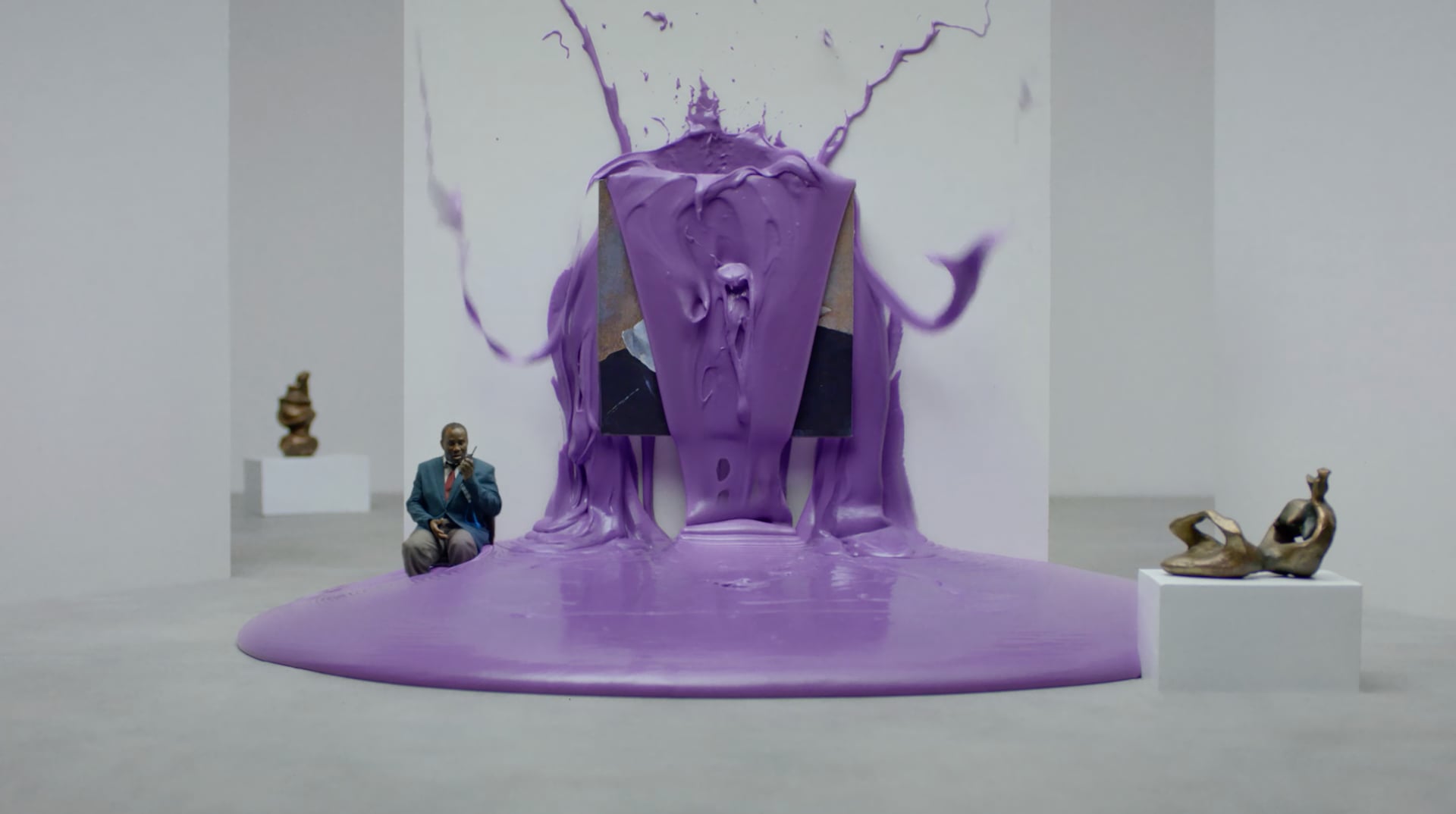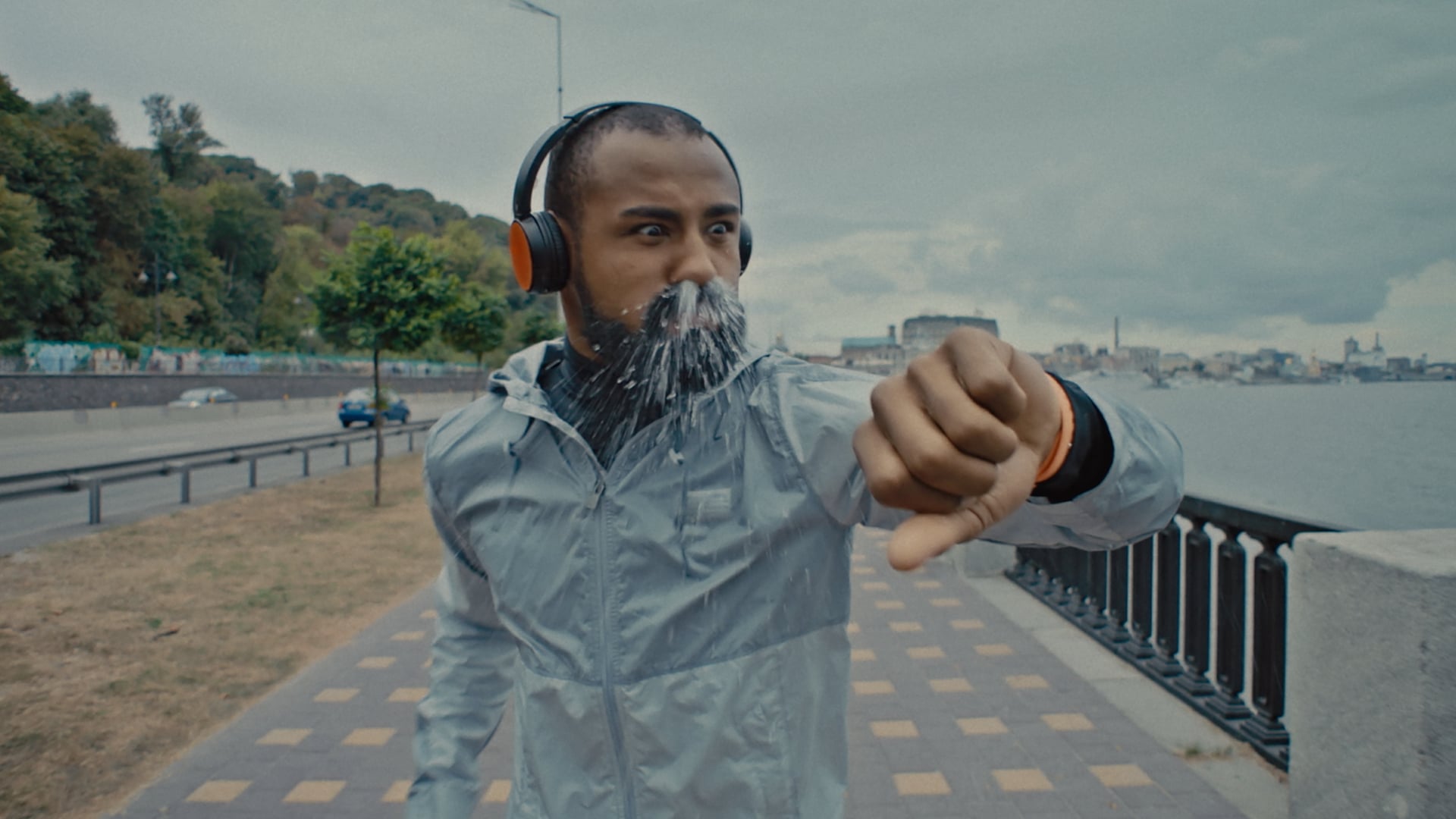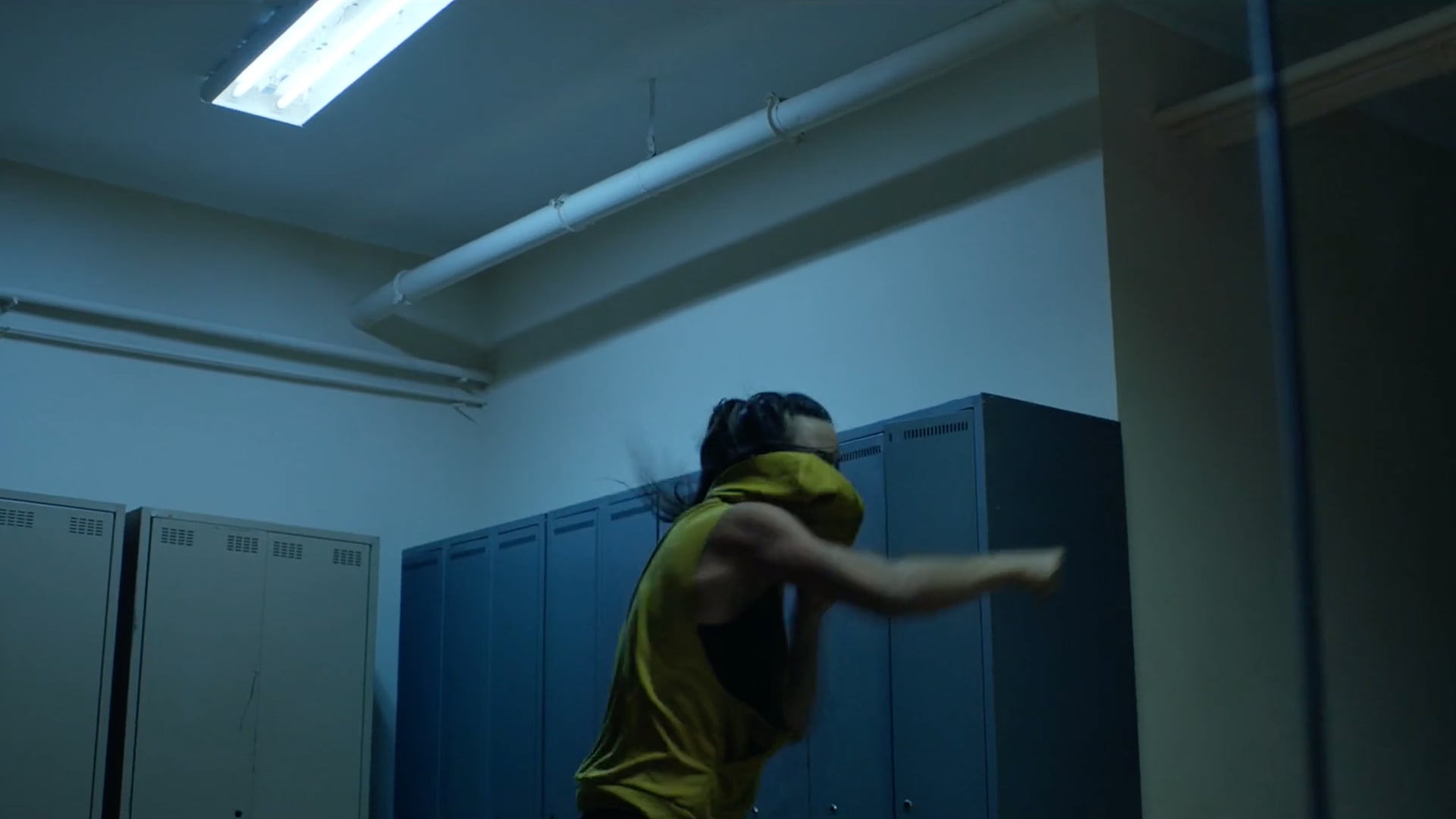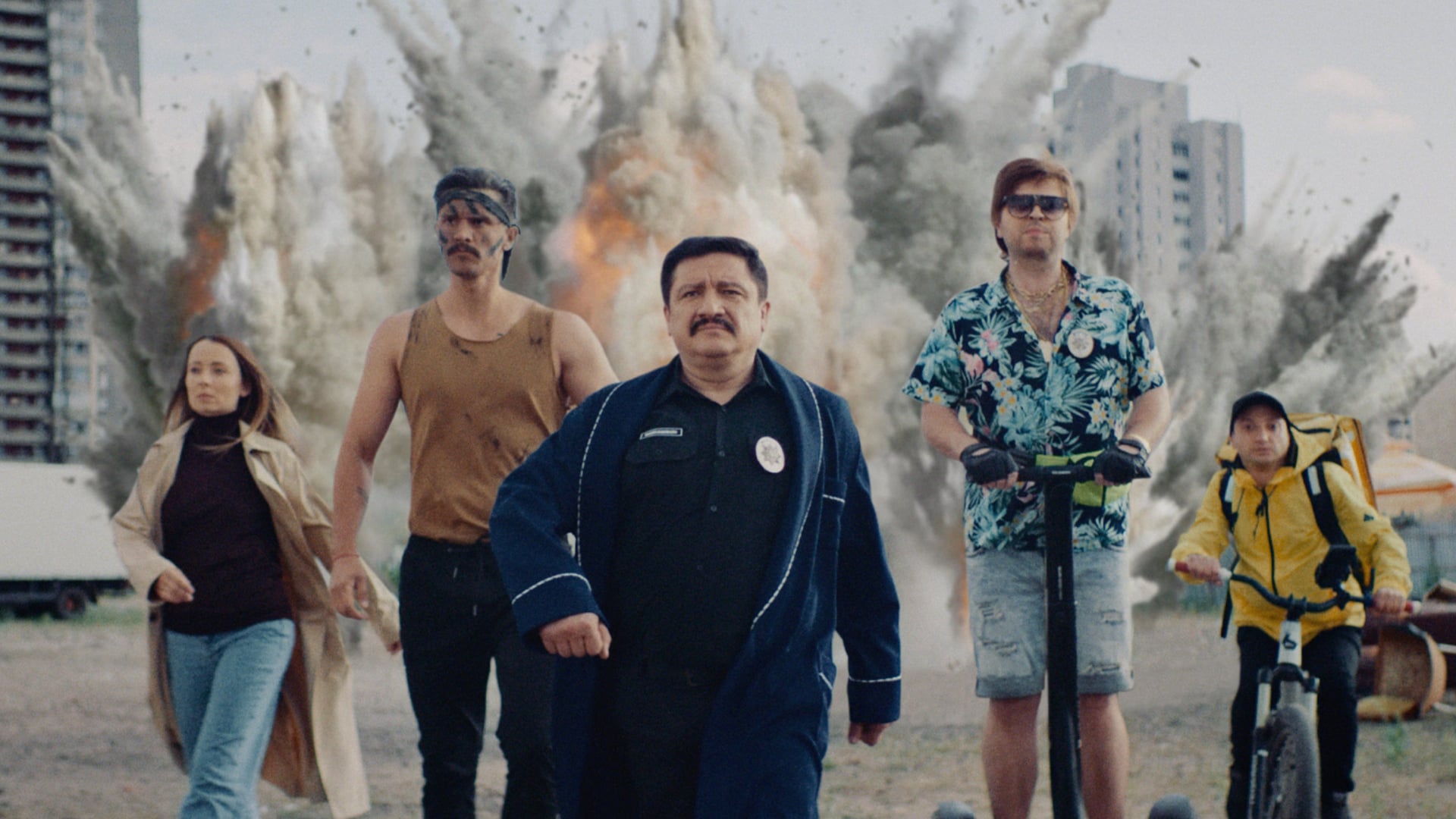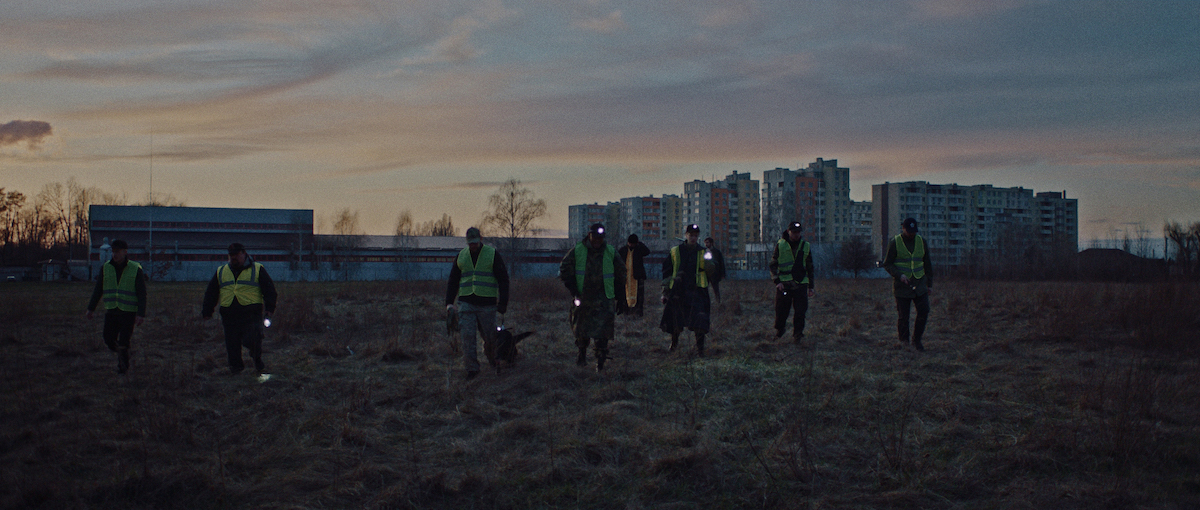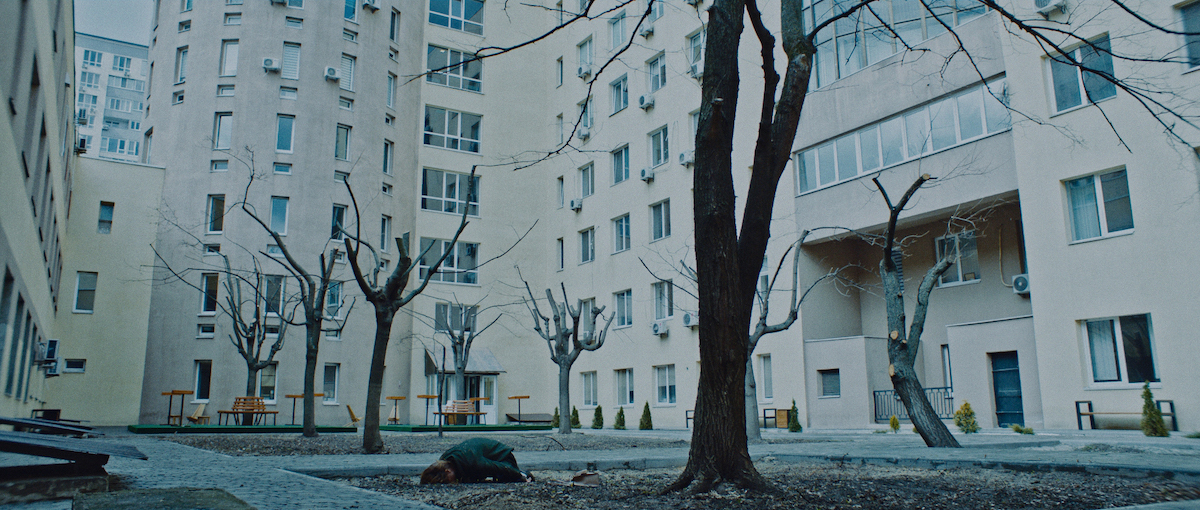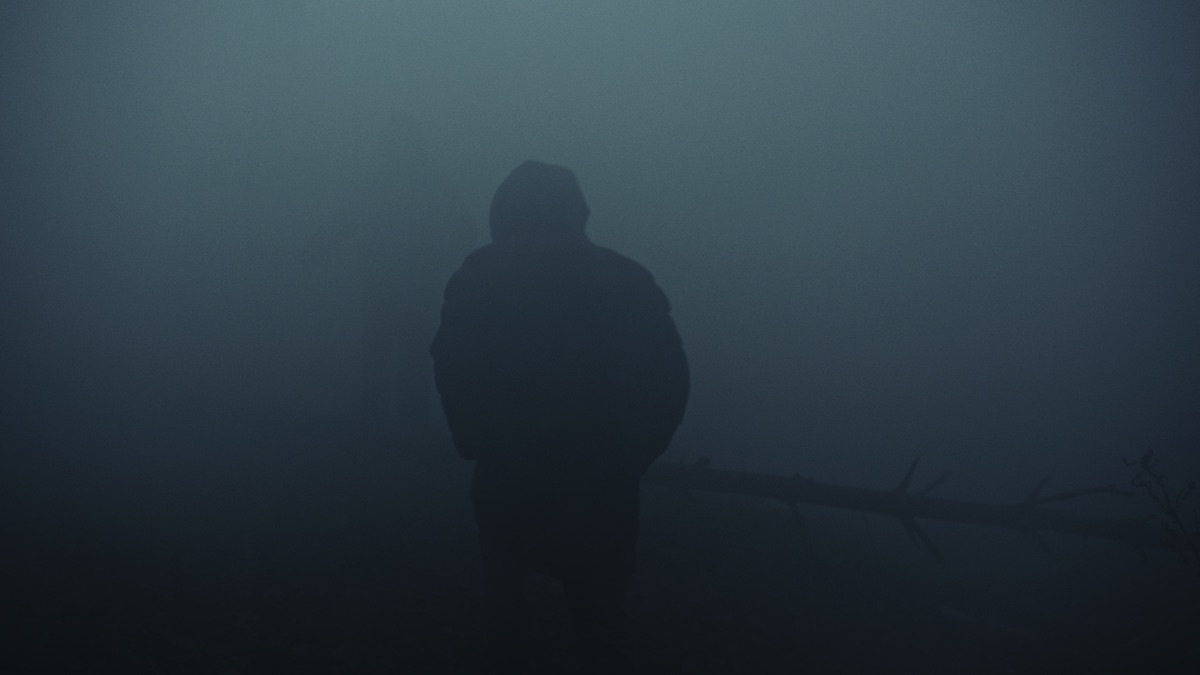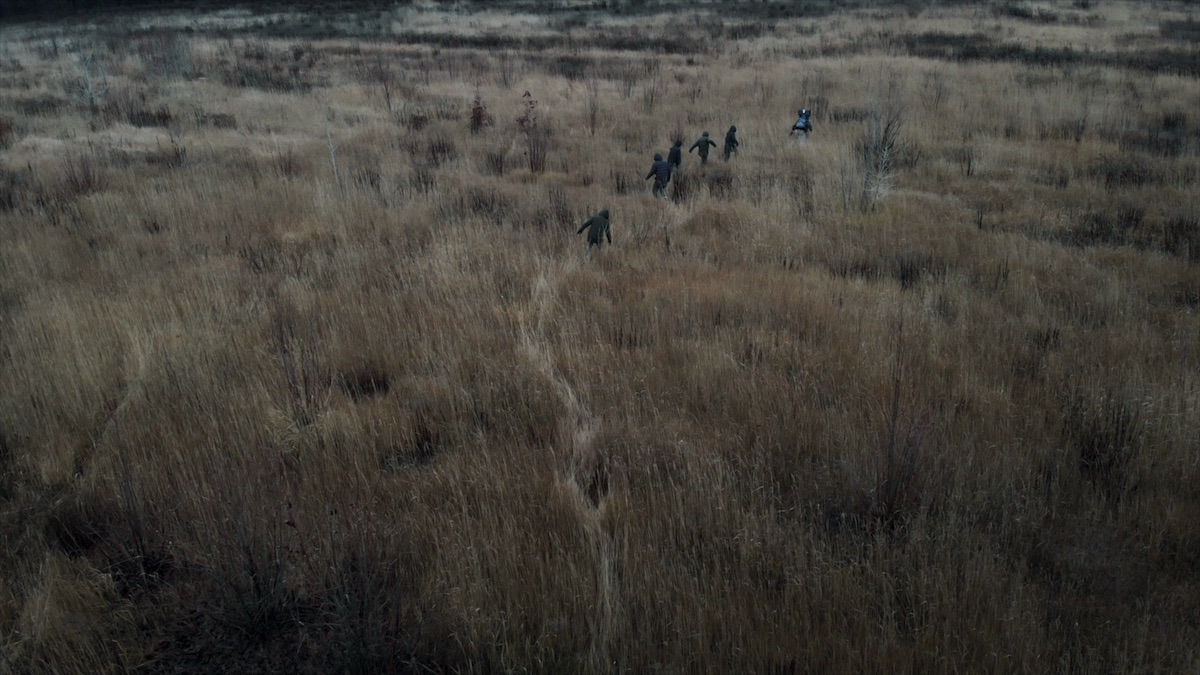Michael Zvegintsev
Can you tell us a bit about yourself and what it was like growing up in Ukraine? Do you come from a creative background?
I was born in the city of Kharkiv in Ukraine, a big industrial city in the east of the country. My childhood was an exciting adventure, but I can’t say that I was a calm or a good kid. At some point my parents were worried my life was going downhill and I could end up in prison or something. But it’s not like I was interested in that kind of thing. Perhaps this can be explained by an ongoing crisis in the country and the fact that I was growing up in the biggest neighbourhood in the country — the kind of place that has lots of faceless and moody 9- and 16-floor identical Soviet blocks. Perfect conditions for becoming a junkie or getting out of there as fast as possible.
I’m basically from a completely regular family — mom’s a doctor, dad’s an engineer. When I was little, I was good at drawing and composed music, but I was never interested in cinema or academic art. Everything changed when I quit my Food Technology degree in the second semester. This was a complete disaster for my parents and the beginning of my creative journey.
Alina Pash’s Prayer
You spent the first eight years of your career as an art director and creative director – why did you decide to go into directing? Are you self-taught?
I think it was a pretty organic transition. Many creatives working in advertising all around the world often end up being directors one way or another, and there are truly impressive cases. When you work in advertising you get plenty of experience working with ideas, you’re often on set, you see how the process works, you interact with modern artists and cool directors. In my case, I was thinking about this for a while and was doubting myself of course, but the idea to become a director was born long before I was in the advertising industry. But at that time it seemed too complicated and confusing, and I had no idea where to start.
I made my first video on a freezing winter night using a military thermal imaging system with a 20 km zoom. The material was to be written on an encrypted CD, which could only be decrypted at a ministry or something like that. It was fun! I’m still grateful to the agency and production company that believed in me. It turned out to be a pretty unusual project, especially for Ukraine.
I didn’t have any specialized education, and you could say that I got all my knowledge from doing it, obviously trying to avoid fuckups as much as I could. The first three videos are always the most difficult, that’s why I prepared like crazy, making animatics and thinking through every detail. Actually, I still have this trait to this day, I’m a big fan of these weird phone made animatics from treatments. I have a whole collection of them.
But I decided to go further. My interest didn’t end with commercials. Now I’m studying at the Berlin Film and Television Academy (DFFB) and this is a truly exciting process, you start to look at some things differently. I think it’s pretty funny that I started shooting ads first, and after decided to go to film school.
How would you describe your directing aesthetic and how much is it informed by your background, culture, and lived experiences?
I’m not so good at intros and descriptions to my films, to be honest. One can reflect for a long time on some shots, finding special and unique value in them. But I don’t do this. In my aesthetic I’m guided by building multiple layers, like in a pie. I like it when a story has variations for ambiguous interpretation and several levels of perception. Before becoming a director, I worked as an illegal worker, a builder, a dancer in a drag ballet show, a consultant, a retoucher, and much more. Maybe that’s why it’s important for me to pass on some kind of an “experience” in my films. I’m probably more for form than logic, as if it’s like a music, a symphony that awakens feelings and emotions. This determines the amount of ‘strangeness’ in a film or things that are hard to explain on the first attempt.
Atlas Weekend, Gallery
We love the surrealist tone of your Atlas Weekend Festival promo — did you draw on any specific filmic or artistic references for the concept and execution?
I like unconventional visual decisions, and in this project, we had a lot of fun. The main leitmotif of the promo is inevitability. And the characters can’t go against this. What was important here was the physics of the color mass itself and its plasticity, the soundtrack and the sounds, as well as the characters’ reactions — or rather, lack thereof — to what’s going on around them. We didn’t have any specific references, but we picked up a lot from Roy Andersson’s films for this project. It was important for me to do everything in one shot in order to keep the atmosphere consistent from beginning to end, without any cuts.
Still from Alina Pash, Prayer
Your music video for Alina Pash explores some interesting themes around women, hysteria and mental illness, and medical and religious attempts at control and treatment… How did you come to work with the artist and did you have complete free reign over the concept?
Yes, I had full creative freedom, I could basically suggest anything. Alina Pash is a very original and unique artist. We met through my wonderful agent Daria Zakharova, and without thinking, I offered her to make a music video straight away. She had a new album coming up, so everything fell into place. I think she had some doubts because I didn’t have any music videos in my reel. A couple of weeks later we met and I showed her my treatment for two tracks at once. This was an interesting experience both for me and for the artist because this is her first video where she actually never appears in the frame, and the role of the protagonist is played by another actress. This is unbelievable trust, and the whole team was super enthusiastic about taking part in this project. At some point it seemed to me like this video would get done even without my participation, somehow everything was working out so organically and moving forward despite another full lockdown in the country.
Still from The Birder, short film
The Birder, your 2020 short film about immigration and people smuggling, is currently doing the rounds on the festival circuit and is a masterclass in suspense — what inspired the concept?
It’s based on true events. I saw some disheartening news online and did an in-depth research on the topic. I was shocked by the facts and figures. Some stories were absurd as much as they were cruel. Turns out I personally know a guy who tried to get into the UK in the most unbelievable way, using a fake passport and literally speaking no English. This is a huge, important topic, which many people are faced with practically in every country.
Did the shoot pose any unique challenges for you as a director? Did it push your filmcraft into any new directions?
Oh yes, I learned a lot while shooting and during post-production. As usual, we had a lot of bad luck, the cars with the crew would get stuck in the mud and we almost lost the first and the last shot. Most of the actors couldn’t speak any of the languages I speak, and we messed up the sound recordings a little bit in some takes. So we had to painstakingly recreate all of this in the studio. This was my first short, and I was completely shocked to find out you can easily throw out three minutes of the film with no problem at all. After The Birder I realized one thing very clearly: I’m close to the idea that all films are political statements in one way or another, and this is my first film with this kind of message.
What are your favourite aspects of the finished film?
I rarely like the result. Because I always think of something that could have been done better, something is annoying here and there. It’s not that I’m that crazy perfectionist, but I’m almost never completely satisfied. And partly this is what makes me go forward, always try new things. But in this there is development and transformation. An artist shouldn’t be static.
Still from The Birder, short film
What kinds of storytelling opportunities do you hope to tackle in future commercial (or personal) projects? What themes interest you in particular?
This is a simple and difficult question at the same time. I can say that I wouldn’t like to become hostage to a specific genre, which often happens with commercial directors. I see many topics I’d like to explore: the society, the media and the modern human with all his weaknesses, phobias and lack of prospects. I’d like to continue experimenting with form and even genres, opening up new possibilities in storytelling. I like to make atmospheric and gloomy films that are full of atmosphere and suspense, but I also enjoy making weird and dopey commercials where human folds talk or a head heating up in the microwave.
And what are you working on at the moment?
At the moment I’m doing early development for a film, studying at film school in Berlin and shooting commercial projects.
Interview by Selena Schleh
